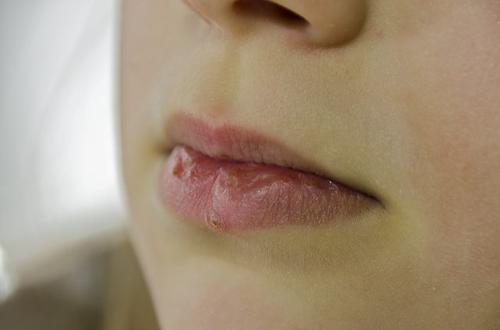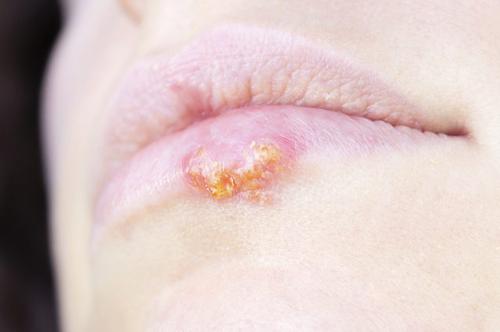Stages of Herpes and Top Treatment Methods
Herpes is a chronic disease caused by a virus that affects the mouth and genital parts. When herpes strikes, cold sores, lesions, or blisters develop on these areas. There are two types of viruses that cause herpes.
- Herpes simplex virus type 1 (HSV-1): HSV-1 mainly affects the human face and mouth. Additionally, HSV-1 can also affect the genital parts. This type of herpes virus is transmitted through kissing, oral sex, or genital sex.
- Herpes simplex virus type 2 (HSV-2): HSV-2 solely affects the genital parts (pubic areas, inner/back thighs, and buttocks).
After 2 to 20 days from the date of contracting the virus, symptoms might appear. The most pronounced ones are painful red sores or bumps, which can develop into small blisters, although those sores (commonly called "cold sores”) disappear in 2-3 weeks. Additionally, you might experience some of these primary symptoms: muscle aches, nausea, fever, headaches (flu-like symptoms), and a painful or burning sensation when urinating.
Explanation on Stages of Herpes
Herpes develops in stages, and both types of herpes have similar stages of development. If herpes is left untreated during the initial stages, they lead to other advanced stages. That is why a doctor's attention is needed. If you want to know herpes pictures of every stage, keep reading.
- Prodrome
You may be wondering "how does herpes look like on a man when it first starts?”, it is better to see the pictures on the internet and not on one's own body. Prodrome is the initial stage that appears 1-2 days after infection. It is characterized by red skin, burning, itching, and a tingling effect on the affected areas. In some cases, a painful sensation is reported which can be accompanied by flu-like symptoms.

- Bumps and blisters
If one does not notice the infection at the prodrome stage, swelling and inflammation kicks in. In this second herpes stage, red bumps appear which might be clustered or sparsely scattered around the affected area. Due to the itchy feeling and consequent vigorous scratching, blisters develop. The blisters are filled with fluid which might appear whitish, clear, or reddish in color, and they might be painful when touched. They can remain painful for about 2 days.
- Crusts and ulcers
If at this stage you have not gotten any medical attention, the most serious and painful stage begins. It might last for 1 or 2 days, but it will be the most painful stage. When the blisters open up or break, wet ulcers emerge which ooze some fluid. They appear raised and reddish like fresh cut wounds. Any slight touch on them causes severe pain. This, along with the oozing, is why this stage is known as the weeping stage.

- Scabbing or crusting
Herpes pictures are never attractive, including those of this stage. After the wet ulcers have disturbed your peace for 2 days, the crusting stage starts. The wet sores dry out. Dry crusts are formed to cover the ulcers as a new skin develops under it. However, the dryness is accompanied by pain, bleeding, itchiness, and cracking skin. This condition lasts for 3 days.
- Complete healing
After all the weeping, the dry crust peels off leaving a completely healed wound. If the crust is not peeled off until total healing is achieved, there will be no scar left on your skin. The sores should heal without peeling the crust off; let the crust fall off by itself. All this happens within 4 days after the first sign that the weeping stage is ending. If scars form after you have disturbed the healing process, the topical ointment can be used to get rid of the scars.
Best Treatment Methods for Herpes
Remember, Herpes is viral and viral diseases have no cure. The only thing that a medical professional can do is help you manage various herpes stages. Below are some of the management or rather treatment methods to consider:
-
Lysine: Lysine is a kind of amino acid found in lean meat, pork, eggs, beans, lentils, fish and chicken. You have to take lysine supplements to keep the herpes virus dormant. Lysine treats or manages herpes by inhibiting Arginine, an amino acid in your body that promotes the herpes simplex virus. Thus, eating more Lysine-rich food and reducing Arginine-rich foods help inhibit herpes from occurring.
-
Zinc: If your genitals have been stricken by HSV, topical application of zinc sulfate can help. Zinc treats or manages herpes by improving your body immunity, healing the affected tissues, and keeping the HSV dormant. 30 milligrams of zinc applied twice a day is really helpful.
-
Essential oils: If you're suffering from herpes, consider essential oils. Essential oils like tea tree oil, myrrh oil, and clove oil are very effective. They contain antimicrobial properties that relieve the itchy feeling and fight off germs that can contaminate the open sores.
-
Medical treatment for genital herpes: The FDA has approved three types of medical treatments. They are medicines called acyclovir, valacyclovir, and famciclovir. They can be used as episodic therapy, taking the medicines from the day you observe the first sign and continuing for a couple of days. The main aim of these treatments is to speed up the healing process or suppress its outbreak.
-
Medical treatment for oral herpes: The same drugs used for genital herpes can be used for oral herpes treatment. For example, valacyclovir pills are very effective. Additionally, there are others, like acyclovir ointment and penciclovir cream, that are applied topically and are very effective.
If you contract herpes, it does not mean you will always be disturbed. Instead, it is just a matter of following your doctor's advice. It is true that virus infections have no cure, but proper management and treatment can speed the healing of ulcers or even suppress HSV manifestation.
YOU MAY LIKE
-
Best Tips to Get Rid of Milia
-
Top 9 Proven Ways to Get Rid of Head Lice
-
How to Treat a Boil - Best Home Remedies
-
Key Causes and Best Remedies for Itchy Bum Hole
-
Coconut Oil: A Cure for Yeast Infections
-
Wondering How Long Does Sunburn Last?
-
Brown and White Crusty Spots on Skin: Top Causes and Treatments
-
Yeast Infection: How Long Can It Last?
-
Bumps on Your Vaginal Area After Shaving
-
Best Tips to Remove and Prevent Burn Scars on Skin
